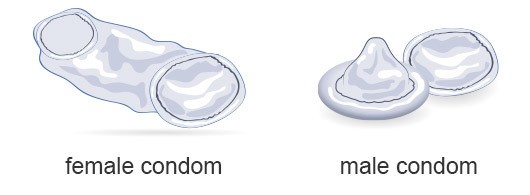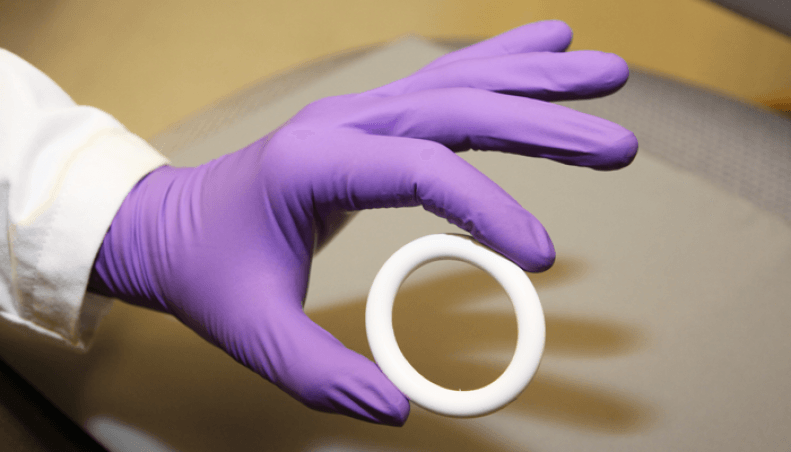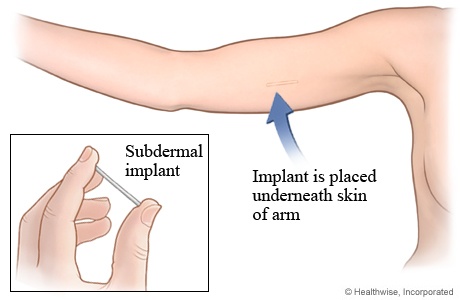Method 1: The Pill
This method is super popular. Taking pills every day will prevent your ovaries from ovulating (also known as releasing an egg), while additionally, the hormones found in these pills will make it extremely difficult for sperm to reach an egg that might have slipped through. Two types of pills that you’re able to take each day are:
Birth Control Progestogen-Only Pills
The pill isn’t for everyone, however. Make sure you check out the pros and cons listed below.
Pros:
If you’re great at following a set schedule, these methods will help you tremendously. These pills are also known to soothe period cramps, treat heavy periods, and can sometimes treat endometriosis.
Cons:
While these pills are known to treat many things (see above list), they can also be quite dangerous. If you forget to take a pill one day, you can suffer from some pretty awful side-effects, which include (but are not limited to) vomiting, diarrhea, and sometimes pregnancy. The pills need to be taken at the same time each and every day to be at their most effective to prevent pregnancy. Moreover, these pills don’t prevent you from getting STDs.
Method 2: Condoms
There are two types of condoms: female ones and males ones.
Pros:
Condoms are super easy to apply! All you have to do is break open the wrapper, put it on, and go to town. You insert them and when you’re finished, you simply pull them out and throw them in the garbage.
Cons:
A lot of the time we lose ourselves before sex. We get so caught up in the moment that we forget to put on a condom (or insert a diaphragm or cap). Not using contraceptives can, and a lot of the time will, result in pregnancy. Some people also do not find pleasure while having sex with a condom on, but can’t always rely on the “pull-out method”. Condoms can break easily, too. If you forget to put spermicide on the diaphragm or cap before inserting it, the sperm will not be killed. This can also result in pregnancy.
Method 3: Rings
Vaginal ring is a small, soft plastic ring to place inside the vagina. The vaginal ring stays inside of you for 21 days (you must take it out while you have your period), and then you insert a new one for another 21 days. The ring releases oestrogen and progestogen which prevents ovulation (release of an egg). This makes it difficult for sperm to get to an egg and thins the womb lining, so it’s less likely that an egg will implant there.
Pros:
With contraceptive methods like these, you can go as long as a few weeks without worrying about anything.
Cons:
The vaginal ring has been known to cause blood clots (in rare cases). If you forget to take the vaginal ring out after 21 days, you’ll have to go to your doctor immediately to receive emergency contraception.
Method 4: Implants & IUDs
If you don’t want to worry about taking a pill every day, getting a shot (or removing a ring) every month, or using a condom every time you have sex, these methods are for you. As long as you remember to check in with your doctor every few years, these contraceptive methods will work wonders for you. Some long-term contraceptive methods include:
Contraceptive Implant Intrauterine Device (IUD) Intrauterine System (IUS)
Because you’ll have these inside of you for years, it’s good to know what the pros and cons to these are.
Pros:
You don’t have to do anything for, well, years! This is great for people who have a hectic schedule and can’t remember to go to the doctor every few months or take a pill at a certain time each day. If you don’t want to be pregnant for a while (or simply don’t want kids at all), these methods are ideal for you.
Cons:
Some people who have used these contraceptive methods have been known to get infections in (and around) the area where it was originally implanted. These infections are of course treatable, but you’ll be in some pain for a little while. These methods can also cause high fevers, pain in your lower abdomen, and smelly discharge. If you experience any of these symptoms, it’s best to go to your doctor right away.
Final Verdict
Whichever method you choose, make sure that it will fit your day-to-day schedule. Be sure to stay on top of it and go to your doctor if you feel any pain or discomfort right away. What methods have you used in the past? Did you ever experience negative side effects from these methods? Let us know in the comments below! Be sure to share this with your friends and family members, too!



